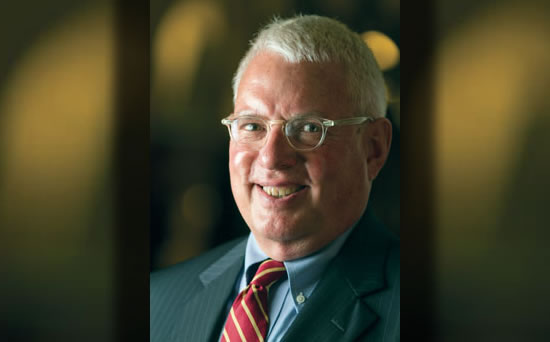GUEST EDITORIAL
It’s Time To Focus On Work
By President Scott Evenbeck, Guttman Community College

President Scott Evenbeck, Guttman Community College
I just attended sessions at The College Board Forum where I heard repeated statements that we in Education have moved over the years from a focus on high school graduation as the most important effort for entry for jobs, to college access as the key effort, and now completion of college as the focus. But there is now, appropriately, much more attention to getting our students prepared for employment. What do we mean and what does the effort entail?
The Association of American Colleges and Universities (AAC&U) has long surveyed employers about their hopes for their entering employees. What do they seek? They want their employees to think critically, to communicate well orally and in writing, to be able to work with others. These are amongst the student learning outcomes we stress (and assess) with our students. Here, we call them Guttman Learning Outcomes (GLOs). Centering on preparation for careers and liberal learning are not separate.
At Guttman Community College all first-year students take a core course conceived here called Ethnographies of Work. In this course, built on sociology and anthropology, students learn about the world of work. They do ethnographies of careers in their first semesters. We can’t wait till they’re finishing up to talk about moving on to their careers. How do we interweave these educational and career emphases? They’re not separate for students. And, they shouldn’t be separate for us.
Many colleges are moving from a model of students visiting the careers office in their last years of study in order to prepare resumes and seek job interviews to a focus on careers as students begin their college study. We need to bring discussion of careers into the classrooms and advising centers. At Stella and Charles Guttman Community College, Student Success Advocates serve students in their first years of study, and we have advisors we call Career Strategists working with students in subsequent years. Nearly all our students are seeking baccalaureate education. We work hard to support students’ aspirations both to continue their educations and to prepare for careers. They come to college in order to find job and career pathways for themselves.
The “gold standard” for students engaging with the world of work has long been internships. Higher education is stressing experiential education, and internships are a primary exemplar of experiential education. There’s great work underway in New York City with HERE to HERE focused on making sure students from the Bronx beginning in Grade 9 through age 25 benefit from a sequenced set of experiences and curriculum, working with Pathways to Prosperity founded by Bob Schwartz and Nancy Hoffman, co-founded by Dreamyard, Big Picture Learning and the Dimon Foundation, and lead by Abby Jo Sigal, Randy Moore and Richard Rivera. Additionally, the Chancellor of CUNY, J.B. Milliken has prioritized the “Career Success” of students as a major strategic pillar for the University. The CUNY-wide strategy calls for stronger employer engagement, a re-envisioned set of career development services for students, and a sector strategy for faculty to help create a more cohesive student, employer and faculty experience that is aligned and informed by industry ultimately leading to better employment outcomes for graduates. At our college, we have a very promising effort with JP Morgan Chase for students to work as part-time tellers while they complete their education; if these students continue their employment at Chase, they will be on track and well-positioned for a variety of wonderful careers.
CUNY community colleges educate the low income, first generation New Yorkers, reflecting diversity, who are the present for New York City but who will largely define the future of our city. Few things are more important than melding together the world of education and the world of work. New York City is the optimal place for the success of that enterprise. #
